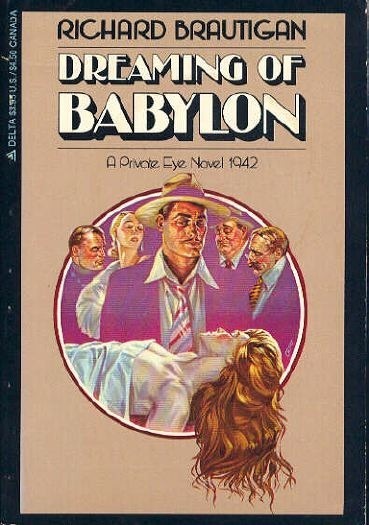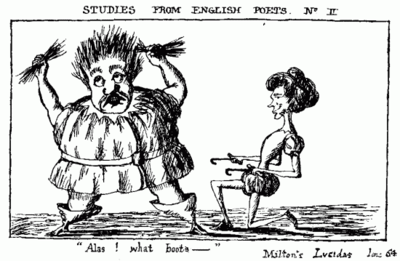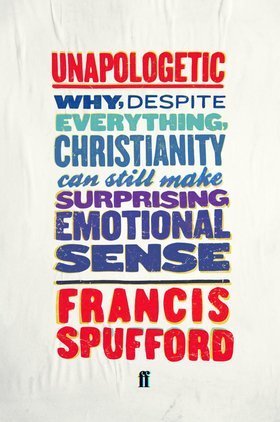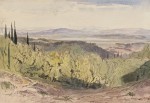Peter Stothard's Blog, page 70
October 18, 2012
Le casting, le hardeur . . .
by Adrian Tahourdin
The 14th summit of the francophone group l’Organisation internationale de la francophonie was held in Kinshasa last week. There are 56 member states, with a strong representation in West and sub-Saharan Africa. According to the organisation, which, among other things, hopes to share “the humanist values promoted by the French language”, 85 per cent of French speakers in the year 2050 will be living in Africa.
Continuing the stats: there are 220 million French speakers across the world, making it the planet’s ninth most widely spoken language. It is, surprisingly, the third most widely used language on the web. And, as we were reminded this summer, it is also the official language of the Olympic Games.
The Académie française, guardian of the “language of Molière”, has been desperately trying to slow incursions by the English language but how realistic is this in the age of the internet and globalization?
Even the country’s most highbrow newspaper Le Monde is not immune: recently it has printed headers such as “Standing ovation à Aix pour le ‘Written on Skin’, de George Benjamin et Martin Crimp” and, over a review of a recently opened exhibition in Paris, L’impressionisme, cette machine à cash-flow”. It can blithely talk of how “M. Obama fait du ‘forcing’ sur sa réforme de la santé"; he is not, we are reminded, a “punching ball”. “Soyons fair-play!”, an editorial on last summer’s riots in London opened, no doubt with a nod to the matter at hand.
But then the French have always seemed to enjoy taking English words or phrases and tweaking them in such a way that they seem unfamiliar to us, as in “un restaurant de bon standing”, or “Un long travelling sans gêne”. Some of these bastardizations are frankly ugly: “le relookage” (to give a new look to, from the verb “relooker”), for example, or the admittedly not widely used “remastériser”, as in The Beatles’ albums have been “remastérisés”.
We have become used to “le marketing”, “le lobbying”, “le lifting” (“Avec son lifting, on dirait une vieille star du porno”, in an article about Putin), “le casting” (as in the appointment of Baroness Ashton to an EU top job having been “une erreur de casting”), “le sponsoring”; we can add “le cloud computing”, “le teasing”, “le timing”, “le fooding”, “le leasing”, “le coaching”, “le scrapbooking”. In South Africa, Johannesburg is “la ville-happening”.
I particularly like the verb snober, to snub, as in “Une partie du milieu musical français continue de snober le travail du compositeur américain John Adams” (Le Monde), which sounds odd to an Anglo-Saxon ear - even if the noun snob dates back at least as far as Proust.
Sometimes it almost seems as if French language users have given up the fight, as demonstrated by this list of verbs: interviewer, boycotter (and the noun le boycottage), squatter, cliquer, surfer, zapper (as in “il zappe mais ne surfe pas”), swinguer, as in “Londres a swingué dans les annees 60”.
The list can appear endless: le raider Lord Rothschild, le flash-back and le flash-forward, les fashion victims, le has been (Le Monde’s neat characterization of Tony Blair), la strip-teaseuse, and, a favourite of mine, le hardeur - a porn star (silent “h” of course), who is presumably expected to display plenty of ardeur.
Of the annual literary rentrée, “beaucoup d’auteurs confirmés sont dans les starting-blocks” means that a lot of authors are about to publish books. Writing about one of her authors, the Flammarion boss Teresa Cremisi asserted “Cet écrivain [Michel Houellebecq], il ne faut pas le ‘starifier’ mais le lire” in November 2010. Even in a prestigious Pléiade volume, the reader is asked to “voir la table des copyrights” - what’s wrong with "droit d’auteur"?
On the sporting front, “le sprint est une question de timing”, says the Italian cyclist Alessandro Petacchi, while the Spanish footballer Carlos Puyol is described as having “une chevelure de hard-rockeur”. In tennis we have “le tie-break”, while “le passing” (shot) enables le tennisman Jo-Wilfrid Tsonga to “breaker”. There is plenty of talk of le challenge, le burn-out, le recordman etc.
Social networks are a natural home for anglicisms, naturellement: "facebookiens", “blogueurs”, “j’ai jamais twitté”. “Pour arrêter de recevoir cette newsletter, répondez simplement à ce mail . . ”. As the election slogan earlier this year had it, “Au lieu de geeker va voter”.
October 12, 2012
Perambulatory Christmas Books, part 2
By J. C.
By now, you are familiar with our purpose: to pay tribute to the thriving secondhand book trade of London and environs (we have also written about shops in Edinburgh, Berkeley, Paris and other places), and to offer festive reading suggestions as alternatives to My Shit Life So Far.
We don't visit the same shops on each tour of duty. Last year, we skipped Fosters', on Chiswick High Road, because it seemed a bit pricey. Is it still there?
Last week, we strode out west and felt a pang of autumn pleasure on seeing the white-painted villagey bow window, above which the sign says "Books". Inside, there are tons of the things, ranged long, piled high. A few commoners foraged in the outdoor barrows, and knowing our place we joined them. We lighted on an oddity: Declaration, published by MacGibbon & Kee in 1957, in which John Osborne, John Wain, Kenneth Tynan and others "outline their roles in our society". The word "commitment" hung in the air, though it sounded better across the Channel. France had Existentialism and Juliette Gréco; Britain had the Angry Young Men and Alma Cogan. It was one year after the Soviet invasion of Hungary, which broke some people's faith, but not others':
"I am convinced that ... there is a new man about to be born, who has never been twisted by drudgery; a man whose pride as a man will not be measured by his capacity to shoulder work and responsibilities which he detests, which are too small for what he could be."
Doris Lessing – the words are hers – still believed that collectivism could abolish inequality and boring work. Colin Wilson, whose book The Outsider had been published in 1956, was at the opposite pole. Like Lessing, he abhorred drudgery. "We live in an age [when] workers clock-in and discuss the football results or last night's television programme."
For him, the medicine man was not Marx, but Nietzsche; not Lenin, Kierkegaard. "Heroism is individualism." The filmmaker Lindsay Anderson compared Britain to a nanny state – perhaps the first application of that concept. "Nanny lights the fire and sits herself down with yesterday's Daily Express; but she keeps half an eye on us too, as we bring out our trophies from abroad, the books we have managed to get past customs."
The editor of Declaration was the twentyfour-year-old Tom Maschler, who began by thumbing his nose at the TLS. A leader writer had taken a perplexed view of "complicatedly motivated aggressive hysteria ... the typical mood of many of our cleverest youngest writers".
Fifty-five years on, even Mr Maschler might see what the author was getting at. As for the "new man", he turns out to be more interested than ever in football and television. Even so, it is easier to be an Outsider today than it was then. No ideology is required; only the civil philosophy of live and let live. For this enjoyable curiosity, with a cover by Eduardo Paolozzi, we paid £2.
October 6, 2012
Archives under threat at Ruskin College
By DAVID HORSPOOL
The move of a red-brick Oxford College from one part of the city to another is not an event one would expect to interest anyone beyond the postman and Pickford's. But a spot of decluttering presided over by the College Principal, Audrey Mullender, has caused some consternation. The College itself has concentrated on their "discovery" of a portrait of Bernard Shaw by the Fabian artist Bertha Newcombe, painted in 1892, and previously thought to have been lost during the Second World War. Actually, it has been on the wall of the College common room. “When we got it down, on the back it had a sticker that said “owner: Labour Party”, so I thought they might want it back", Professor Mullender explained to the local paper.
The Labour Party were pleased to receive the painting, and Professor Mullender was photographed with Ed Miliband to seal the deal. No one seems to have asked whether the Party might actually have donated it to the College, and whether they should keep it. GBS's biographer Stanley Weintraub thinks that the College's decision is "sheer blindness . . . .The label on the back of the painting offers no evidence of loan or gift. The Labour Party has no serious exhibition space for it and very likely it will go on the auction market once the issue quiets down, and make the big money Bertha Newcombe could never earn". Apart from any other consideration, one wonders, if the painting is sold, why the College, rather than the Labour Party, wouldn't want the money.
But if giving away prize assets seems a little cavalier, that is nothing compared to the upset caused by Mullender's decision to destroy admissions records from the College's early years in the move. A blog by a historian, Hilda Kean, who once worked for Ruskin, called this decision an "act of philistinism". Prof Mullender told me that the destruction of the originals happened after the data they contained had been digitized, though not the "subjective material" that, she says, would contravene the data protection act if it referred to people who were still alive. She also wanted to make it clear that suggestions that a banner from the 1984 Miners' Strike and a historic plaque had been lost were inaccurate. One was back on display in the College's new premises, the other is on loan to the Marx Memorial Library in London.
It is certainly debatable whether the provisions of the Data Protection Act do demand the destruction of personal material as Prof Mullender believes. At SOAS, the archive website declares that there are "exemptions provided by the Data Protection Act which allow the permanent retention of data for historical and statistical research. . . . SOAS's history should not be endangered by the overzealous destruction of data that could be retained as historical archives." At Bishopsgate Library, where the archive has previously accommodated material once at Ruskin, the archivist Stefan Dickers was not much reassured by the news that the records had been digitized. He believed that "no professional archivist" had been involved with selecting or transferring the material, questioned what level of access would be made available, and thought that the material would be "far more vulnerable" in digital form. At Bishopsgate, as at other libraries and archives, many documents and images have been digitized, but the originals have been kept.
We have been here before, with libraries large and small destroying card indexes, chucking out historic newspapers, and so on. Professor Mullender feels that the allegations are "unfounded and inaccurate", but does not dispute that material has been destroyed. Can it really be true that personal material must be destroyed? Can it not be kept for an agreed period, after which any sensitive material (tutors' comments on candidates, candidates' own statements) can be examined by historians and researchers without fear of upset. Mullender seemed worried that relatives might be offended by "completely inappropriate" material making its way into researchers' hands. But a hundred years from now, won't completely inappropriate material strike enquirers as merely interesting and potentially enlightening?
October 5, 2012
Perambulatory Christmas Books, 6th series
By J. C.
Perambulatory
Christmas Books, 6th series. In recent years, it has been our custom in autumn
and early winter to find each week a neglected book or curiosity by an
established author, purchased from a second-hand bookshop, to ward off
Christmas gift-book blues. The price guide is £5, but we might burgle the piggy
bank for an extra quid or two if the need arises. All books are bought to be
read.
First, some
remarks. Second-hand bookshops have been assumed to be in danger for several
years now, with reason. New York friends lament the disappearance of
neighbourhood favourites. AbeBooks can supply most things at the click of a
mouse. Many people find convenience in ebooks and e-readers, and if they are
happy, we’re happy too. It makes us even happier to report that all the shops
we mentioned last year (sixteen) are still in business. A book is a book is a
book. You cannot own an ebook. It has no aesthetic properties: no
ornamentation, no weight, no smell; in short, no character. It offers no choice
between nice-to-handle and that experience’s opposite. It does not furnish a
room.
We began our
perambulations, as usual, in the Charing Cross Road area, London’s booktown.
Cecil Court continues its bijou existence, hosting several specialist shops,
dedicated to cars, theatre, gambling, etc. It is also home to one of our
regular haunts: Peter Ellis, at No 18 – rather, our haunt is the pavement
outside, where stands a barrow with assorted books at modest prices. Last week,
as the nights began to draw in, we lighted on Days of Contempt by André
Malraux, just the kind of thing we like: something unfamiliar by someone
familiar. The dedication is unexpected: “To the German comrades, who were
anxious for me to make known what they had suffered and what they had upheld”.
Malraux
(1901–76) was, par excellence, the writer as man of action (a species in graver
danger than the book). He was a revolutionary, fought in Spain, served as de
Gaulle’s Minister of State, wrote books on art. As the author of Man’s Fate (La
Condition humaine), Malraux would once have been mentioned in the same breath
as Gide, Mauriac, Sartre, Duras; but his other novels are scarce now. Days of Contempt
(Le Temps du mépris) was written in 1935, two years after Man’s Fate. The
German dedicatees are early communist victims of the Nazis. Hitler
is mentioned in the second sentence. A comrade, Kassner, is about to be
interrogated. “Across the table sat the Hitler official. He was true to type:
heavy jaws, square head, close-cropped hair . . . .” Things get bad for Kassner
before they get better. Both he and his creator, however, believe
they can only get worse for the forces of reaction: “This [Nazi] government
has to reckon with foreign public opinion . . .”. It turned out not to be that
simple.
In 1936, the TLS described Days of Contempt
(translated by Haakon M. Chevalier) as “very short, very simple, very moving”,
an “epic that deserves high praise”. For our Gollancz Left Book Club Edition,
tightly stitched in the usual orange cloth, Peter Ellis charged us £3. We put
what was left of our budget towards a copy of the original, ordered by post
from Cornfield Books of Brighton (£5), mainly for the pleasure of displaying
the cover. In the year of original publication, it had reached its “trentième
édition”.
October 1, 2012
Puzzles by the perfectly sensical Lewis Carroll
By MICHAEL CAINES
Opening at random Gillian Beer's new edition of Lewis Carroll's poems, Jabberwocky and Other Nonsense, guarantees a pleasurable experience – not all of it nonsensical.
Take page 12, for example, where you'll find "Brother and Sister". A classic case of the sibling feud, the poem begins with a "calm" sister's rejection of advice from a "prudent" brother, and ends, via a detour into the kitchen to borrow a frying pan, in an excellent moral: "Never stew your sister".
Or there's the plain serenity of page 87: "All in the golden afternoon / Full leisurely we glide; / For both our oars, with little skill, / By little arms are plied . . .".
Or there's page 50, which confronts you with the musically marked-up "score" for "The Dear Gazelle": a stanza about the narrator's "infant son" fleeing Tooting School begins "pp" and ends "con spirito": "And serve him right, the little fool!". So far, so – sensical?
But there is also a pleasant surprise in the appendix of "Poems Doubtfully Attributed to Lewis Carroll": "Solutions to Puzzles from Wonderland, probably from another hand". As Professor Beer notes, these answers in rhyme may be the work of Mrs Gatty, the energetic editor of the family periodical Aunt Judy's Magazine, in which the seven puzzles (originally written for Carroll's young friends) and their solutions first appeared, either side of Christmas 1870.
That attribution seems more than likely. According to Christabel Maxwell's Mrs Gatty and Mrs Maxwell, Margaret Gatty greatly admired Carroll's work ("If you want to have a good hour's smiling do beg, borrow or steal Alice's Adventures in Wonderland", she told a friend; "It is the only dreamy dream I ever read, and it makes one feel as if one was asleep in a very fantastical world of animals all topsy-turvy"), and had shown how much she appreciated him a few years earlier, when she published a couple of his stories in her magazine and urged him to take them further – the stories duly grew into Sylvia and Bruno.
Here's one of Carroll's verse-puzzles; a familiar trick to some readers, I'm sure, but all good clean Victorian fun, all the same. Read on a little to judge the verse-solution for yourself. Jabberwocky and Other Nonsense will be reviewed in the TLS at a later date.
John gave his brother James a box:
About it there were many locks.
James woke and said it gave him pain;
So gave it back to John again.
The box was not with lid supplied,
Yet caused two lids to open wide:
And all these locks had never a key
What kind of a box, then, could it be?
As curly-wigged Jemmy was sleeping in bed,
His brother John gave him a blow on the head;
James opened his eyelids, and spying his brother,
Doubled his fist, and gave him another.
This kind of box then is not so rare;
The lids are the eyelids, the locks are the hair,
And so every schoolboy can tell to his cost,
The key to the tangles is constantly lost.
September 27, 2012
A social media view of Much Ado

By MICHAEL CAINES
The RSC's "Indian" Much Ado About Nothing officially begins its London run tonight; and this is what Act 2 Scene 3 will look like from the stalls, courtesy of what is apparently something of a novelty at the moment: a theatre company holding a social media call.
That's Anjana Vasan as a maid on the swing next to a tree (both of which now seem to be quite common features of productions of Shakespeare comedy, whether an "arbour" is required or not), shortly to be packed off by Benedick to fetch a book from his chamber-window. No witty boy answering back, impudently unwilling to carry out his instructions ("I am here already, sir"), for Paul Bhattacharjee's serious soldier and enemy to love.
And note the musicians lurking upstage, under the arches, ready to accompany a tabla-driven performance of "Sigh No More" sung by Balthasar (Raj Bajaj). The danger for most productions is that this famous song delays the action; here it becomes a fabulous opportunity for dancing (that maid again) and briefly acting out a show of patriarchal tyranny (ie, the maid gets put in her place).
In other words, it was an enticing taste of the show for those who hadn't had a chance to see it in Stratford upon Avon, matched by an interesting Q and A session afterwards. The director Iqbal Kahn of this all-Asian production said that he thought Much Ado might be Shakespeare's best comedy, not just a "romp". Bhattacharjee dismissed the "traditional" conventions of performing Shakespeare (all RP, all white) as a relatively recent invention. Another member of the cast backed up that point by mentioning that he'd acted in more than thirty Shakespeare plays; a third likened the powerful combination of Shakespearean language and Indian accents to the discovery (or rediscovery) some decades ago that (shock! horror!) blank verse and Northern accents do mix. It reminded me of talking to another Benedick some years ago – Tom Mannion at the Open Air Theatre in Regent's Park – who'd happily discovered (or rediscovered) the effect on the audience of pronouncing "yea" in a modern way: "yeah".
Like much of this year's World Shakespeare Festival, that's the kind of irreverence that contrasts refreshingly with the underlying attitude of "Original Practices" productions – follow that link, to Katherine Duncan-Jones's recent review of various Shakespeare productions, for one invidious side effect of sticking to doublets, hoses and all-male casts.
September 25, 2012
My Richard Brautigan mistake (but not Jarvis Cocker's)

By MICHAEL CAINES
It now turns out that I was wrong when I wrote in a TLS piece published earlier this year, in the July 20 issue, that the American writer Richard Brautigan left a bad joke of a suicide note. According to longstanding rumour, it read: "Messy, isn't it?" But according to a letter published in last week's issue, the story is apocryphal; it originates in a book called Elvis Presley's Twin: A metabiography by W. Lambert Gardiner.
I didn't get it from there (and not from Wikipedia, either, where this detail in Brautigan's entry has only recently been updated), but I did see the story repeated in at least one review of Jubilee Hitchhiker, the recent biography of Brautigan by William Hjortsberg, and heard it dropped into conversation as fact during one of the early meetings of the Brautigan Book Club. But Brautigan's daughter Ianthe now confirms that it's not fact but fiction.
Who knew?
Well, besides the author's daughter and the writer of that letter of correction: Jarvis Cocker knew.
Until recently, he could be heard here, courtesy of BBC Radio 4, talking about "one of the twentienth-century's greatest authors" (steady on, Jarvis), and explaining the suicide note as a piece of "Brautigan folklore". (The Wikipedia entry changed the following day.) Brautigan didn't leave such a note. "But he could have" – and a fairly gruesome description follows of the belatedly discovered scene of the suicide. An excerpt from the programme is still available over here.
The shame of it, Cocker continues, is that this "grisly" end should come to such a great writer, "who gifted the language some of its most delicate and playful lines". Some examples then follow (playful, certainly; delicate I'm not so sure about). Here are a few more: short poems haunted in the small print by the sad part of the story.
Cocker's sentence about shame and gifts works a bit better, I think, as a segue than as a serious observation (which writers are grisly ends reserved for?); and the programme doesn't actually dismiss the myth as aberrant but embraces it: it's titled "Messy, Isn't It?: The life and works of Richard Brautigan". Is the suggestion that, aping the characteristic, frank concision of Brautigan's verses, that mythical suicide note succeeds in distilling some truth about the darker side of Brautigan's imagination – his (I hope . . .) well attested self-destructive streak? That it's not biographical fact but a piece of critical insight?
ie, in another sense, Brautigan didn't write that note – "But he could have".
NB Meanwhile, back on the lighter side: the Brautigan Book Club meets three more times this year (beginning with a celebration of his pastiche of a detective novel, Dreaming of Babylon, tonight), before it finally disappears into the night, chanting whimsical lines about the Amelia Earhart pancake and cybernetic meadows as it goes. . . .
September 17, 2012
The unapologetic Francis Spufford
By RUPERT SHORTT
Richard Dawkins’s bestseller The God Delusion (2006) has prompted many pro-religion counterblasts, though none has enjoyed a comparable profile, still less the high priest of atheism’s vast sales figures. Perhaps the situation will change with the publication of Francis Spufford’s Unapologetic, a book written with as much vim and joie de guerre as the works it excoriates.
Spufford, who teaches writing at Goldsmiths College London, knows a thing or two about an arresting opening. “My daughter has just turned six,” he tells us. “Some time over the next year or so, she will discover that her parents are weird. We’re weird because we go to church. This means that as she gets older there’ll be voices telling her what it means, getting louder and louder until by the time she’s a teenager they’ll be shouting right in her ear. It means that we believe in a load of bronze-age absurdities. That we fetishise pain and suffering. That we advocate wishy-washy niceness. That we’re too stupid to understand the irrationality of our creeds. . . That we’re savagely judgemental.” You get the picture.
One function of the rhetorical fireworks is to draw out a point often lost on the forces of militant atheism, namely that religious commitment is a way of life that comes into focus as the believer advances along a spiritual path, not a matter of assenting to 101 incredible propositions before breakfast. Of course a faith such as Christianity makes truth claims, which (among other things) should not be incompatible with modern science. But you don’t think your way into a new way of living: you live your way into a new way of thinking. The emotional and practical elements of faith are indispensable.
Spufford makes a courageous fist of putting his glimpse of the transcendent into words. A pivotal moment came in a cafe one day, when he heard the slow movement of Mozart’s Clarinet Concerto while ruminating on a row with his wife. He describes the music as coming from a world where sorrow is perfectly ordinary, but there is still more to be said. “I had heard [the piece] lots of times, but this time it felt to me like news. It said: everything you fear is true. And yet. And yet. . . The world is wider than you fear it is, wider than the repeating rigmaroles in your mind, and it has this in it, as truly as it contains your unhappiness. . . There is more going on here than you deserve, or don’t deserve.”
He is quick to deny any implied claim that a divine puppet-master was micro-managing his sense of revelation. Mozart created a beautiful and accurate representation of an aspect of reality. And two centuries on, Spufford drew what he sees as a crucial inference from it: “I think that the reason reality is that way – that it is in some ultimate sense merciful as well as being a set of physical processes all running along on their own without hope of appeal, all the way up from quantum mechanics to the relative velocity of galaxies by way of ‘blundering, low and horridly cruel’ biology (Darwin) – is that the universe is sustained by a continual and infinitely patient act of love.”
The clue to Unapologetic lies in the subtitle: Why, despite everything, Christianity can still make surprising emotional sense. The TLS will carry a full-scale review of the book in this week's issue.
September 10, 2012
Edward Lear in Corfu
by Adrian Tahourdin
Edward Lear loved Corfu. He visited the island no fewer than nine times
and spent more than three years there. He wrote in his diary, in
1866, “Can I give no idea of this Paradise island to others?”
To mark Lear’s bicentenary this year, the Corfu Museum of Asian Art
recently mounted an exhibition entitled “Edward Lear & the Ionian Islands”.
The museum, housed in the sumptuous palace of St Michael and St George in Corfu
Town, is the home to a fascinating permanent collection of 10,000 items,
amassed by the Corfiot diplomat Grigorios Manos, and which he donated to the
Greek government in 1926.
Lear was the 20th of 21 children and was handed by his exhausted mother
at the age of 4 to be cared for by his 26-year-old sister Ann, who also
oversaw the education of the sickly child: he suffered from epilepsy,
depression and asthma and was later advised to travel to the Mediterranean for
his health.
The artist went to Rome in the 1830s and first travelled to Greece in
1848, on a “sketching tour”. He would later venture to the Middle East and on
to India and Ceylon. He also travelled in Albania, whose mountains rise
up across the Corfu Straits, a mere 3km across at some points, and
visited the ancient city of Butrint, now a Unesco World Heritage Site.
The Ionian Islands were a British Protectorate until 1864, when they
were handed over to Greece. Corfu had a thriving British community which
appears to have been something of a trial for Lear, although he did form a
close attachment with Frank Lushington, who was ten years younger than him and
had been appointed judge at the Supreme Court of the Ionian Islands. In the
view of Lear’s biographer Susan Chitty, his love for a succession of younger
men was probably platonic.
Writing in the excellent catalogue accompanying the exhibition (with
facing text in Greek), Anthony Stevens, of the Royal College of Psychiatrists
and a member of the International Association for Analytical Psychology (who
also lives in retirement on Corfu), provides an interesting analysis of the
artist, and discusses his repressed homosexuality. Stevens speculates that the
six weeks that Lear and Lushington spent travelling in the Peloponnese "were probably the
happiest six weeks of Lear's life".
The works in the exhibition - watercolours, pencil pen and watercolour,
oils, and lithographs - are all of outdoor scenes, some of an unerring
precision. Not for nothing did he refer to himself as the “Painter of Poetical
Topography”.
According to Christopher Baker, Deputy Director of the Scottish National
Gallery and the author of another excellent essay in the catalogue, in which he
discusses the role of the artist in 19th-century Britain, the album of 20
prints he would produce, "Views in the Seven Ionian Islands", was
“one of the most attractive illustrated travel books of the second half of the
19th century” (the artist “wrote 600 letters to potential subscribers in order
to ensure the success of the enterprise”).
Lear would often inscribe his drawings and watercolours, in a clear
hand, recording the precise time it had been composed, and giving himself tips
as an aid for completion. These charming inscriptions remain on some works:
“Cushions of wild Artichokes or Acanthus”; “But the wild Asphodel flowers are
nearly all gone”; “innumerable olives”; “wait abit”; “grey rox”; “very red”. On
a sketch of a scene in Cephalonia he writes “The whole - and all the scenery -
is immensely gloomy and grand - not to say forbidding”.
Of a scene in Corfu Lear wrote, in February 1863, “Absolute glorious
calm & clearness all day . . . the magnificent colour of these dells of
orange & lemon trees, with the greyer olive & amethyst hills, are
inimitable & wondrous”.
According to the art historian Fani-Maria Tsigakou, Lear’s “Greek
production is a unique treasure trove of visual testimonies for anyone
interested in tracing Greece’s authentic natural environment in the 19th
century. It is also equally valuable to those attempting to recreate the image of the Greek landscape before the damaging effects of modern-day
distortions and widespread development”. She calls him “the Painter par
excellence of the 19th-century Greek Landscape”.
He himself knew the value of what he was doing. As he wrote in 1856,
“Strange that what to me is always painful & disagreeable work - painting -
should in a couple of months create a work which not only gives pleasure to its
possessor at present but may continue to do so to hundreds of others for a
century or more”.
By a strange coincidence Lear shares his (bi)centenary with another
great celebrator of Corfu: I'm thinking of course of Lawrence Durrell, whose
"Prospero's Cell" remains one of the finest books written about the
island.
September 5, 2012
New Society: Happy Birthday from an anonymous contributor
Paul Barker, a long-time contributor to the TLS, emails with an anniversary reminder of how I began my professional life in print journalism.
I remember it well. In 1977 I was working for the Shell UK Oil company and, bored even beyond expectation, I would leave the Strand after work and walk across the Charing Cross pedestrian bridge (now no longer with us) to the south side — and on to the offices of a magazine called New Society (now equally defunct except in a name lent to the New Statesman).
If New Society had survived in independent form it would have been fifty years old on October 2. Or so Paul tells me. He was the editor at the time my anonymous messages arrived at his door and I trust that he is right.
As he reminds me now: “New Society was not only a wholesale purveyor of social science, but also a home to some top-rank writing (Angela Carter, Reyner Banham, Peter Hall, Michael Wood, John Berger, EP Thomson, to name half a dozen).”
My contributions were rather more modest than those. I would compose paragraphs about politics on a Monday, mostly postcards from the stormy seas of early Thatcherism, and post them onto the New Society mat. Then I would wait in my oil company office till the end of the week and see if any of my words had appeared.
Often they did, usually in the diary column known as Observations and sometimes in leading articles. If they were illustrated I would quietly buy the illustrations. I still have some of those on my walls.
There was nothing then more exciting than that.
In journalism the first time is so often the best.
Paul, who is pictured above to mark his new book on Hebdon Bridge, is thinking back this Autumn to the start of New Society: “There are those who say that Thursday 2 October 1962, when NS was launched, the Beatles put out their first record and the first James Bond film was released, marked the true beginning of the sixties. Maybe so, maybe not”.
Maybe, maybe.
NS was certainly the newspaper beginning for me.
Peter Stothard's Blog
- Peter Stothard's profile
- 30 followers










